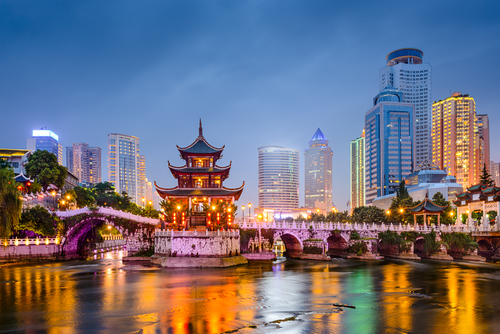Editor's Pick
Chinese stocks plunge: should UK investors run for cover?

China’s volatile stock market suffered devastating losses on Monday plunging 8.5 per cent, its largest one-day fall since February 2007, and one of the worst on record.
The sell-off continued on Tuesday, with the Shanghai Composite Index down 1 per cent.
This dramatic volatility will undoubtedly spook investors with Chinese holdings in their portfolio. But is it time to sell out?
Laith Khalaf, senior analyst at Hargreaves Lansdown, believes it important that UK investors maintain a sense of perspective.
“This was one of worst days ever for Chinese stocks, but despite the recent sell-off, the Shanghai index is still 11 per cent higher than when it started the year,” he says.
Pruksa Iamthongthong, investment manager on Aberdeen Asset Management’s Asian Equities team, is bullish on China’s long term story, believing the fall is merely “a reminder that hot money can flow both ways.”
“Much of the doubling in the Chinese stock market over the past year was due to liquidity and momentum rather than fundamentals – we are now seeing an unwinding of this euphoria,” she notes.
“The fall is welcome. It’s not a sign that the China growth story is coming to an end – rather, people got ahead of themselves in terms of the rosy picture they painted of the economy, and the quality of the companies available.”
Bubble hasn’t fully burst
However, Jake Robbins, manager of the Premier Global Alpha Growth fund, is far less upbeat.
“If I was significantly exposed to China, I’d be very concerned. This isn’t a blip – it’s a number of serious structural problems in the Chinese economy coming to a head, and the market is set to fall further as a result,” he explains.
“If Chinese stocks represent a small proportion of your portfolio, then holding on and sitting through the short-term – 1-2 years – would be reasonable. Some might see this as a buying opportunity, but it’s important to bear in mind that the bubble probably hasn’t fully burst yet. The market still trades at 14/15x earnings despite the fall, not far off its peak, and domestic investors are still trading on leverage.”
Khalaf agrees that investors should prepare for more volatility.
“In the near future we can expect more thrills and spills from the Chinese stock market. The bubble that has built up over the last year from domestic investors trading on margin finance may yet have further to unwind, and the government’s interventionist response to falling stock prices will have troubled many international investors.”
However, he thinks the country’s long-term picture is encouraging.
“While the exact figures are disputed, China’s economy is still growing at a higher rate than western economies, a positive backdrop for many of the country’s companies. Meanwhile the market appears to be gradually opening up to foreign investment, even if the recent trading suspensions are a retrograde step,” he says.
‘China-proof’ your portfolio
Nigel Green, founder and CEO of financial advice firm deVere Group, says investors should consider ‘China-proofing’ their portfolios.
“This latest crash is another chapter in the China slowdown story. The unfolding situation in China is likely to create volatility in the financial markets until the end of the year. With this in mind, investors should consider ‘China-proofing’ their portfolios to manage risk and benefit from the inevitable buying opportunities,” he says.
“The best way to achieve this is to ensure that portfolios are properly balanced across regions, assets and industries, and by working with a good fund manager who will be able to help take advantage of these opportunities and secure the best stocks at the right time for their clients.
“Whilst China’s slowdown is likely to be the big geopolitical driver of turbulence in coming months, I am confident there will be no hard landing as Chinese authorities have all the tools at their disposal to ensure it doesn’t happen.
“Indeed, the slowdown is on-trend. The economy is maturing and there’s a deliberate shift away from commodity-hungry infrastructure spending.
“However, as I noted during a recent trip to China, the Chinese government will need to do much more than they are currently doing to stoke domestic consumption to avoid the slowdown taking a firmer economic strangle-hold.”